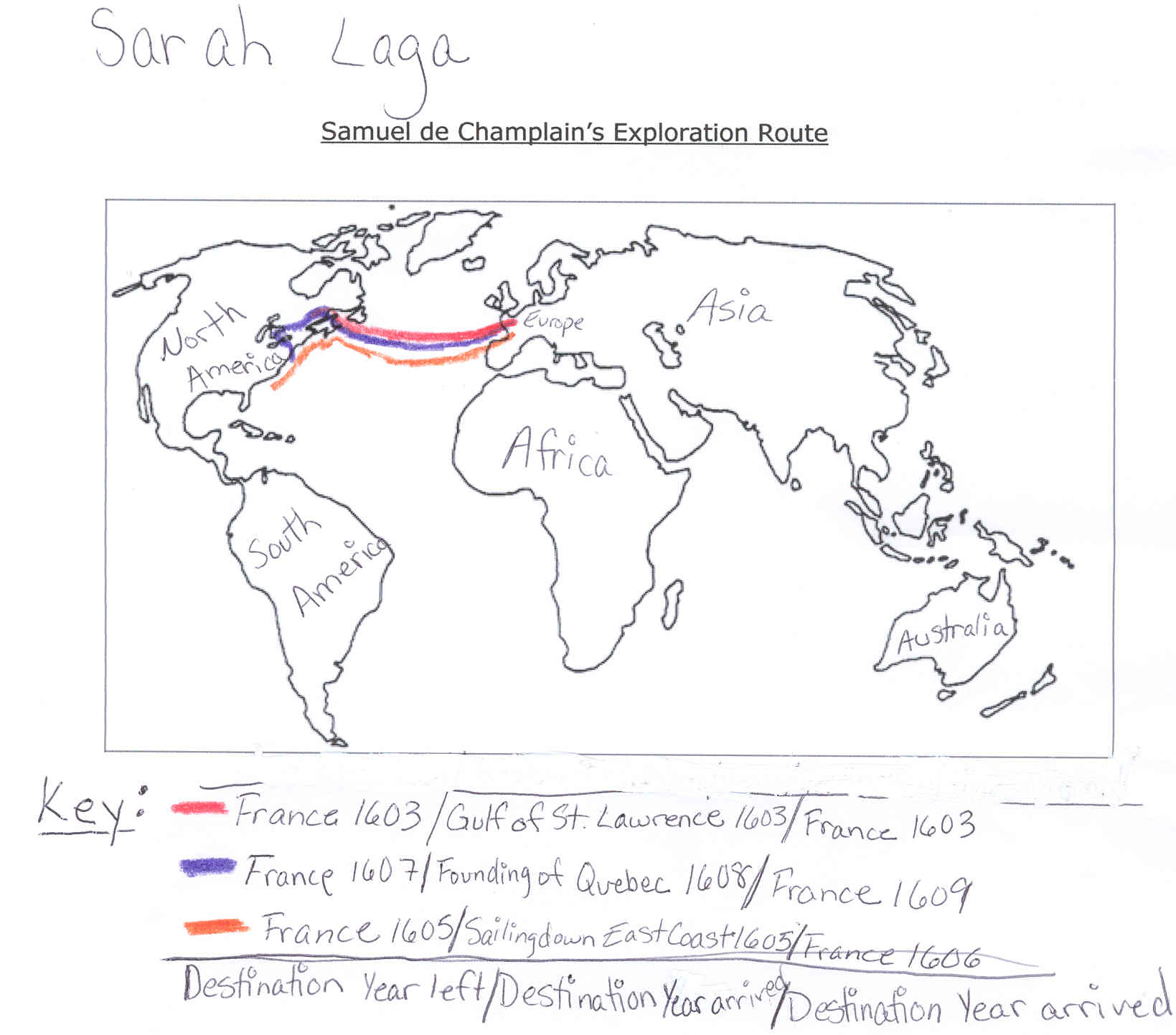Samuel de Champlain
Biography
Samuel de Champlain was born in 1567 in Brouage and died in the year 1635 in Quebec. He was a sailor for Spain and sailed to the West Indies. Then he became a French sailor and traveled to the new world. Champlain’s father was a sea captain, so he grew up close to the sea. For France he explored the northeastern part of modern US and southeastern Canada. When he was exploring, he met the Algonquin, Huron, and Iroquois Indians. He sided with the Algonquin and Huron in their conflict with the Iroquois. His legacy was the Quebec fur trade. The fur trade soon became a huge and important city.
Work cited: Speake, Jennifer, and Thomas G. Bergin. "Champlain, Samuel de." Encyclopedia of Renaissance and the Reformation, Revised Edition. New York: Facts On File, Inc., 2004. Modern World History Online. Facts On File, Inc. http://www.fofweb.com/activelink2.asp? ItemID=WE53&iPin=ERR0386&SingleRecord=True 9/30/09
Map of Exploration

When Samuel de Champlain was exploring the new world he encountered the Iroquois, the Algonquin, and the Huron Indians. He sided and helped the Algonquin in its conflict with the Iroquois.
Work Cited:
http://www.mrnussbaum.com/champ2.htm 9/30/09 Samuel de Champlain
Summary
I think my explorer belongs in the Explorer hall of Fame because he treated the Native Americans he encountered kindly and he also helped one Native American group in a war. Also, he founded a fur trading post (Quebec) that became a huge city. He also discovered a lake while he was exploring present-day New York. That is why Samuel de Champlain deserves to be in the Explorer Hall of Fame.
Work cited: Speake, Jennifer, and Thomas G. Bergin. "Champlain, Samuel de." Encyclopedia of Renaissance and the Reformation, Revised Edition. New York: Facts On File, Inc., 2004. Modern World History Online. Facts On File, Inc. http://www.fofweb.com/activelink2.asp? ItemID=WE53&iPin=ERR0386&SingleRecord=True 10/4/09
Reflection
The motives of exploration in the 15th and 16th centuries are pretty much the same as space exploration today because everyone is curious about the “unknown”. Two similarities are colonization and natural resources are wanted. The costs are something that affects the exploration also. Even though it may costs millions of dollars more today, it was probably the equivalent to them back then. They had to pay for supplies, equipment, etc. If we could get into space and find a planet that we could live on, we could settle there just like the explorers did. We could also find a wealth of natural resources like the explorers did if we look hard enough. The risks are also similar. Some people could die if anything goes wrong with the craft just like if something could go wrong with the ship. The two voyages are different because we are currently going out into the universe where we are not sure there will be any thing, and in the 15th and 16th hundreds they knew that they were at least going to touch Asia, even if there was not the Americas in between. We have no clue what is there and what is not except fo our solar system.
Work Cited: http:// myevecpc.com/~culp/space/rasons2.html Top Ten Reasons 10/8/09
Comments (0)
You don't have permission to comment on this page.